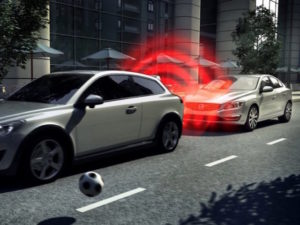Fleets’ top ADAS devices revealed in new research
Collision avoidance and emergency braking are top of the list of advanced driver assistance (ADAS) systems desired by fleet and mobility managers on company cars.

Collision avoidance or warning systems were the most popular ADAS tech followed by automatic emergency or braking systems
Almost half (49%) of operators surveyed by Arval ranked collision avoidance or warning systems in top place, followed by automatic emergency or braking systems (46%), pedestrian detection systems (38%), lane departure warning systems (30%), driver fatigue warning systems (30%), automatic parking systems (20%) and adaptive cruise control (15%).
The findings come from the 2019 edition of Arval Mobility Observatory, which conducted research among 3,930 fleets on a number of topics covering fleet and mobility trends.
Shaun Sadlier, head of Arval Mobility Observatory in the UK, said the research indicates that what fleets want more than anything is for drivers to avoid collisions with other vehicles and pedestrians.
The analysis also looked at the measures taken by employers to minimise road risk. The most common is a risk assessment (61%) followed by a safety communication programme (35%), on-road training (33%) and classroom training (22%).
However, in line with previous Arval findings, the latest research shows a wide gap between the approaches of the smallest and largest businesses. For example, 84% of those with more than 1,000 employees carry out risk assessments compared to 32% with fewer than 10 employees. The difference is even more marked for on-road training, with 62% against 11%.
Sadlier continued: “This is almost certainly an issue of resources. A large organisation will tend to have company-wide risk assessment arrangements in place that cover all their activities in depth and the fleet will benefit from this professionalism.
“What is needed are more services and practical help to enable all smaller employees to raise their safety to comparable standards to their larger counterparts and this is a task in which the entire fleet industry needs to play a part.”

















